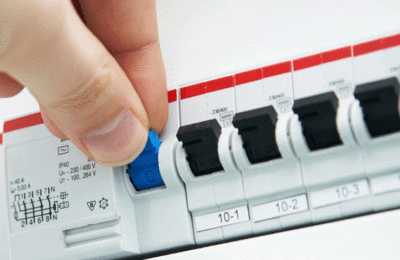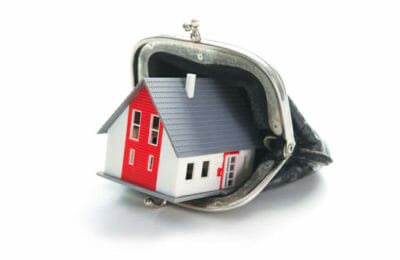Renting your property – proposed removal of Section 21 the thin end of the wedge?
With the removal of Section 21 now firmly back on the Agenda in Labour’s Renters Rights Bill, the tenant fees ban and a more competitive rental market all having had an impact on the buy to let playing field, you’d be forgiven for thinking the BTL sector is now a mug’s game. Now we have the ever increasing interest rate scenario making our BTL mortgages much more expensive.
But over the longer term, there is still good value to be had in renting property, providing you don’t fall foul to some of the pitfalls.
Why being a landlord still works
Renting out a property you are not intending to live in has always been and still remains, a good investment opportunity.
It’s almost like someone else is paying off your mortgage for you! And all the while, at least over the long term, your property (and of course it is YOUR property) increases in value in line with the housing index. And it always amazes me that despite all the bad news in the world, the continuing shortage of demand always seems to hold prices up. Small decreases are almost invariably followed by further periods of more rapid growth.
Buy on a mortgage or rent?
Remember the good old days? It always used to be cheaper to rent.
If you owned your own home, your mortgage would always cost more than if you rented someone else’s. It was as if having something you owned came at a higher premium.
This was good news for tenants because they were able to save money whilst renting, to work towards getting on the property ladder.
But then the housing market changed – interest rates rocketed up and lenders were no longer prepared to offer 95% mortgages as too many home owners had struggled to keep up their mortgage payments.
This led to a decline in sales to first time buyers as they just couldn’t afford to get on to the property ladder.
An inevitable increase in those looking for rented accommodation is what followed.
The demand for rental properties then pushed up rents to the point where despite the recent increases in interest rates, they still generally exceed the cost of mortgage payments in many areas of the UK.
This was good news for Landlords who were able to maximise rental income to pay off their mortgages faster; not such good news for Tenants who are stuck renting and unable to save for a deposit to buy their own property.
An abundance of tenants
While there are a number of financial initiatives available to help first time buyers, the housing market is still very tough and it remains a struggle to get on to the property ladder without a decent deposit of 15% or more.
That means that for the average starter home you would need to have saved getting on for £40,000 whilst still managing to pay your rent. That’s a tall order and even the good old bank of Mum and Dad has its limits!
So more people than ever are now renting, which has led to those with large pockets (usually the baby boomers) becoming Landlords and taking on buy to let mortgages, to capitalise on this demand.
As a result of the increase in demand for rented properties, Landlords can now afford to be choosy about the tenants they take on. The more prudent can carefully vet and reference tenants to minimise the risk of taking on a “tenant from hell”.
Stiffer contracts
This level of competition has meant that Landlords have been able to enforce tight tenancy agreements to protect their financial positions and a number of these have exploited this situation by including unreasonable clauses.
A number of unscrupulous Landlords have been evicting tenants without good reason – perhaps because they refused to pay out to maintain their older property to a good standard.
The proposed removal of Section 21 as well as the tenant fees ban was intended to help to make this playing field fairer but has negatively affected the more responsible Landlords.
Bad tenants and removal of Section 21
There are many decent tenants out there who look after the properties they rent and in some cases, go above and beyond to keep the property in good order.
However, there is an alarming number who don’t.
Whether this is down to the tenant’s attitude as a result of them feeling trapped in the rental market, or poor vetting from the Landlord or both, it’s a problem that can cost Landlords hefty sums in repairs, disputes and fees.
Damage
If your tenant damages your property, it can be very difficult:-
- a) To prove that it was your tenant’s fault and
- b) To get them to cough up for repairs.
If you have to evict a Tenant then you can deduct the cost of repairs for damages from their deposit, which if you have done things correctly, will be sitting protected in the TDS – the Tenancy Deposit Scheme.
Disputes
If your tenants prove to be anti-social then you may find that they have created tension with your property’s neighbours. To resolve such issues, a simple discussion may be all that is required but if the problem persists, you may need to call in the police or commence court action.
Missed rent payments
If tenants get into financial difficulty and default on rent payments and this rent is being used by you to pay your mortgage, then you could fall behind on your own mortgage. If you get into financial difficulty as a result, this could lead to a bad credit rating or even repossession.
Naturally, you have the right to evict a tenant for failing to pay their rent but actually recovering unpaid rent can be tricky. You can deduct unpaid tent from the deposit following eviction but if your tenant refuses to pay and causes damage, the amount owed could well exceed their deposit.
Avoid being a mug
IMHO being a Landlord is not a mug’s game.
It only becomes one if you don’t adequately protect yourself or fail to do things legitimately.
Follow these basic principles and you should avoid becoming a mug landlord:-
1. Do the maths
Is BTL a viable option after you have considered the reduced deposit, the more penal tax implications, the recent increases in mortgage costs, the ban on tenant fees and the maintenance costs?
Are you still going to be quid’s in?
Can you afford to make up the difference if not?
2. Use a well written lettings agreement
Make sure your contract is watertight; ensure it’s legitimate, enforceable and not unreasonable. Have a solicitor look over your template if you are in any doubt.
3. Take out Rent Guarantee Insurance
In these difficult times, with the current cost of living crisis, it’s more important that ever to ensure that your rent is always paid one way or another. RGI isn’t prohibitively expensive and will give you peace of mind should your tenant find themselves in a position where they are unable to afford the rent.
4. Unless you are a highly organised person – consider using a managing agent
Although this will cost you, a reputable managing agent will find and vet your prospected tenants, deal with all ongoing maintenance and take are of end of contract management, cleaning and tenancy issues. This is their business day to day so they should have more experience than you.
The other approach is to use a managing agent until you have learnt the ropes and feel confident to manage the property yourself. You could then perhaps use a lettings agent to advertise for prospective tenants and then take over from there.
5. Work to build rapport
If you have a good relationship with your tenants, they are less likely to be problematic.
Be on-hand to answer questions and resolve issues quickly but don’t be too intrusive. Respect their space and privacy. Give them reasonable notice of any visits or inspections.
6. Keep an eye
If you know the neighbours surrounding your BTL property well enough, ask them to keep an eye out and let you know if they think there may be an issue.
After all – the sooner you are aware of a potential problem the faster it can be resolved, potentially saving you money.
Buy to let advice with THP
Find out more how THP can help Buy-To-Let Landlords or contact us here today at THP Chartered Accountants, with offices in Chelmsford, Sutton, Wanstead and Saffron Walden.
About Jon Pryse-Jones
Since joining THP in 1978, Jon Pryse-Jones has been hands on with every area of the business. Now specialising in strategy, business planning, and marketing, Jon remains at the forefront of the growth and development at THP.
An ideas man, Jon enjoys getting the most out of all situations, “I act as a catalyst for creative people and encourage them to think outside the box,” he says, “and I’m not afraid of being confrontational. It often leads to a better result for THP and its clients.”
Jon’s appreciation for THP extends to his fellow team members and the board. “They really know how to run a successful business,” he says. He’s keen on IT and systems development as critical to success, and he continues to guide THP to be at the cutting edge and effective.
Read more about Jon Pryse-Jones











